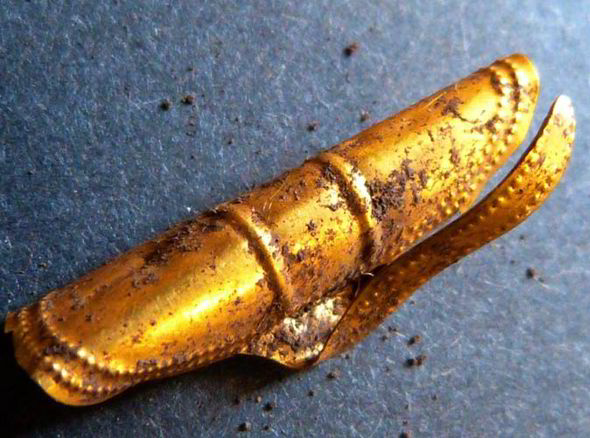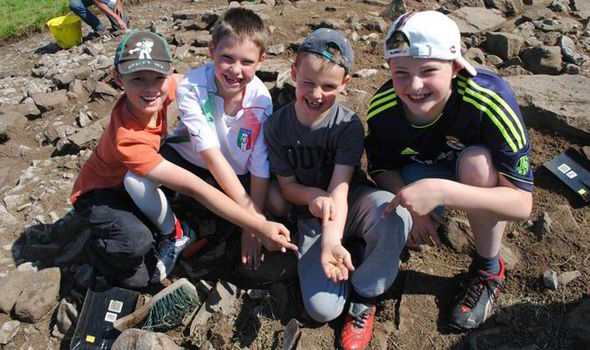
Golden pin declared a treasure
Categories: Treasures , Calendar , Nálezy nejenom s detektorem ve Velké Británii a Irsku
In 2014, four schoolchildren found a rare gold pin that was only recently declared a treasure by the coroner. Only around ten similar pieces of jewellery have been found in the UK.
Seven years on, prospectors found a gold jewel near Alston, England, seven years ago. It wasn't until before Christmas last year that the jewel was declared a treasure by the coroner. The artefact dates back to the Early Bronze Age. The find was examined by experts at County Hall in Morpeth.
They believe it is a piece of jewellery that would have been put in hair or on clothing. The ornament measures 33 millimetres and dates from around 2400 BC. It's a beautiful example of metalworking at the time.
The artefact, made from almost pure gold, was discovered in Kirkhaugh Cairns near Alston by four young men in 2014. Brothers Sebastian and Luca Alderson, and Joseph and Aidan Bell. Together they were taking part in a special archaeological project in the North Pennines area. The aim was to explore the area and possibly salvage rare artefacts.
The jewel was discovered by the four boys alongside three flint arrowheads. The ornament was declared a treasure by the Coroner for South Northumberland, Andrew Herrington, on 17 December exactly, under the Treasure Act 1996. The jewel will now be offered to the museum for purchase at a price to be set by an independent panel of experts.
Even when the four boys found the jewel, experts said it was one of the most significant Bronze Age archaeological finds in the UK. It is one of the few such gold ornaments ever found there. The boys dug the artefact out of the ground when they noticed something glittering in the clay.
The boys were between seven and ten years old at the time. "We carefully dug into the ground. We saw something glittering and it was gold," said Joseph, then seven years old. "Luca and I started dancing with joy, it was unbelievable," the boy added.
"When I saw the jewel for the first time I was really happy, even though at first I thought it was something plastic," added eight-year-old Luca.
Around ten similar clasps have been found in the UK, including one in Kirkhaugh in 1935. Joseph Alderson, of whom brothers Luca and Sebastian are grandsons, was there. The boys, together with about fifty volunteers, spent nine days searching the ground under the supervision of Professor Andrew Fitzpatrick and a team of professional archaeologists from Newcastle.


Sources: www.newsandstar.co.uk, www.express.co.uk
The article is included in categories:





